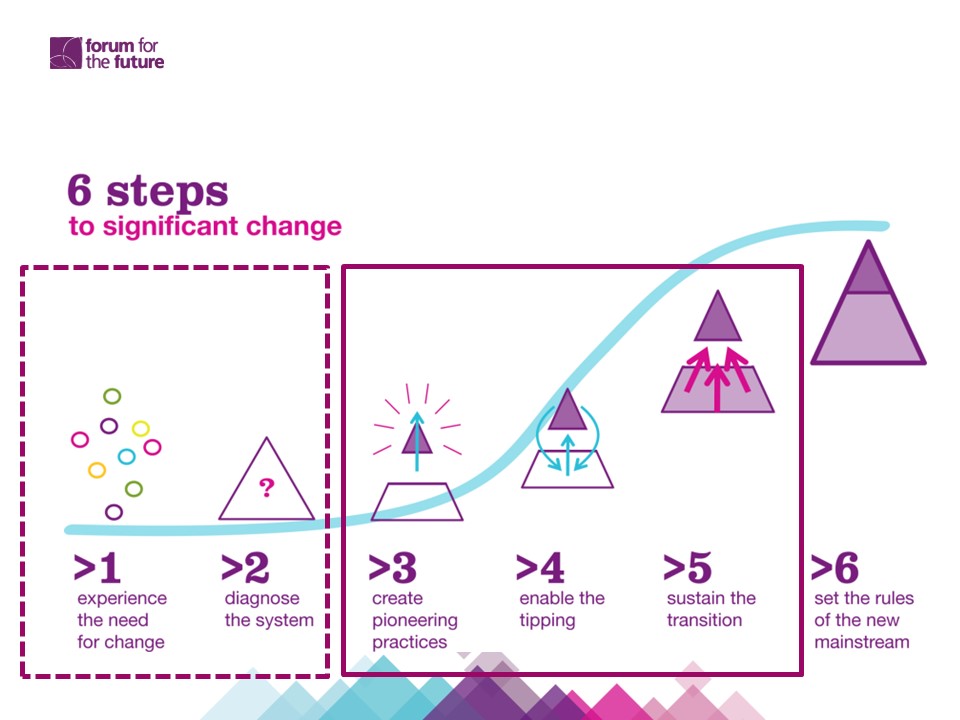The October meeting of Constructing Excellence’s Sustainability Theme Group covered the critical issue of achieving behavioural change for sustainable construction. Three speakers shared their experiences and passed on some invaluable insight into what leads to successful and maintained behaviour change.
The Speakers
Martin Hunt, Built Environment and Infrastructure Specialist from Forum for the Future presented on change management and leadership. Forum’s Sustainable Business practice often works with very large multinational companies and encourages collaboration.
Caroline Watson talked about behaviour change for sustainability from the work of the environmental change charity Global Action Plan (GAP). GAP provides help on specific issues and helps to ensure that awareness leads to action.
Caroline Watson’s presentation
Sharon Davies, Principal Sustainable Development Communications Manager at Willmott Dixon, gave an overview of the approach and success of the company’s ‘Everybody Plays a Part’ campaign.
Key themes for Achieving Behavioural Change for Sustainable Construction
While the speakers all gave a number of insights, some key themes were shared. One of these was that understanding the culture and barriers of individual companies and sites was very important. Activities need to be tailored to the specific culture and operations being undertaken to really make an impact. If you want people to adopt new behaviours, you have to show them how it benefits their core beliefs and aims.
Caroline gave an example of this from GAP’s work at Barts Health NHS Trust. Nurses, quite rightly, prioritise patient care and issues like saving energy are secondary to this. To design a successful energy reduction programme, GAP looked at how to tie energy-saving into patient care. The team came up with a TLC campaign: “Turn off, Lights out, Close doors”. This helped nurses to link energy saving with patient care because it took actions that helped patients to sleep better, improving recovery rate. It led to comments such as “it feels calmer with the doors closed”.
In the first year, the campaign helped Barts to save £100,000 in energy costs. The savings are being maintained because the behaviours that it has encouraged provide something that the nurses already wanted to do.
Sustainability is a very large topic. Another lesson that came across strongly was that starting with one specific and simple activity and making it stick is very important. Once the benefits of success are seen, they can be repeated with other examples.
Mind how you say it
A point closely allied to culture was that the importance of choosing language that is meaning full to the people who you are trying to reach. In another project, clients who initially said they weren’t interested in sustainability still prioritised sustainable outcomes such as local employment and energy efficiency, suggesting that it is important to be specific when discussing the opportunities which sustainability can bring.
All the speakers noted the importance of ensuring that company objectives were cascaded down to individuals’ objectives. This helps to make them real and ensure that policy turns into action. This approach helped companies such as O2 on their Think Big Blueprint. There was, however, a warning from the Martin Hunt about a ‘marzipan layer’ of senior and middle managers who have goals that are sometimes as odds with the greater vision. This layer can disrupt the message as its spreads across a company.
What next?
If you are interested in more detail of what was covered at the meeting, you can read this expanded report on the meeting.
If you are interested in joining the Constructing Excellence Sustainability Theme Group and attending the next meeting about “The Circular Economy in Construction” please contact colm.quinn@constructingexcellence.org.uk
Martin Gibson is the Director of Earthly Gains and a member of the Constructing Excellence Sustainability Theme Group

